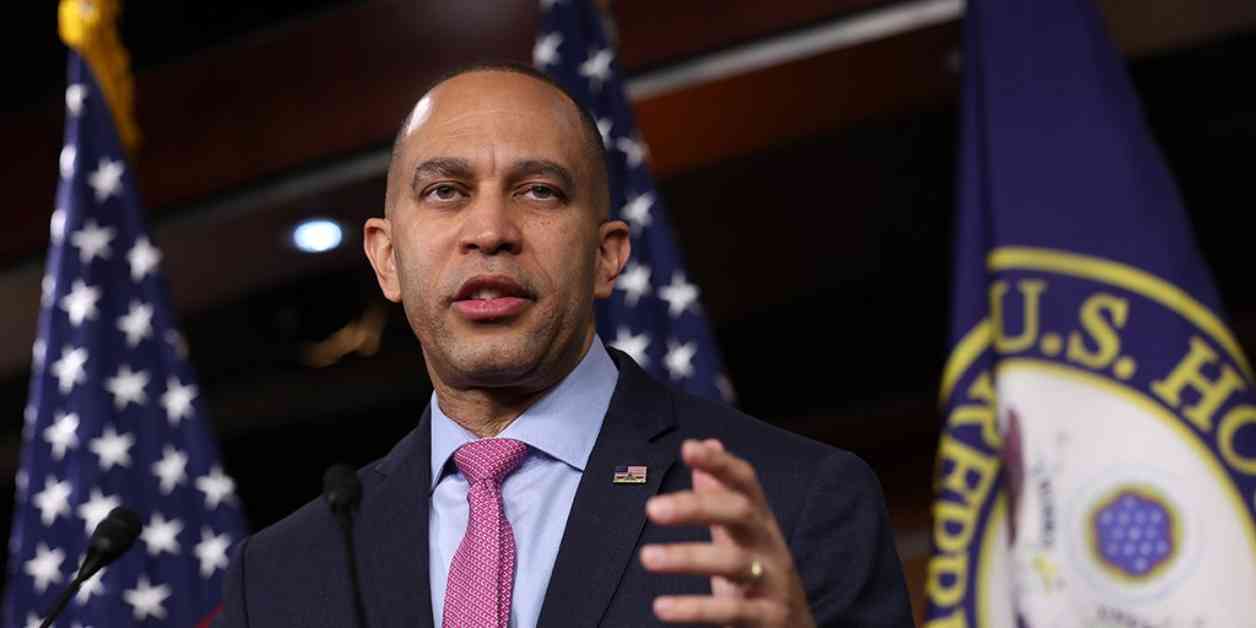Democrats Deny Election Fraud Claims Despite Past Statements – Jeffries’ Remarks Compared
Democratic House Minority Leader Rep. Hakeem Jeffries, D-N.Y., made a bold claim on the House floor declaring that there are “no election deniers” within the Democratic Party. This statement comes despite Jeffries’ own history of questioning the legitimacy of past election outcomes, particularly President Trump’s victory in 2016.
Jeffries’ Contradictory Statements
In a surprising turn of events, Jeffries, who previously expressed doubts about the validity of the 2016 presidential election, now asserts that his party stands united in accepting election results. His past statements on social media, where he referred to President Trump as a “fake president” and questioned the legitimacy of his election win, seem to contradict his recent stance.
Reactions from Political Figures
Jeffries is not the only Democratic leader to cast doubt on the legitimacy of past election results. Former Secretary of State Hillary Clinton, who ran against Trump in 2016, has also labeled him as an “illegitimate president.” Similarly, Rep. Jerry Nadler, D-N.Y., boycotted Trump’s inauguration in 2017, citing concerns about the election’s integrity due to Russian interference and FBI involvement.
Challenges to Election Results
Furthermore, several Democratic representatives challenged the results of the 2016 election in their respective states following Trump’s victory. This pattern of questioning election outcomes highlights a broader issue within the party regarding the acceptance of election results and the impact of external factors on the democratic process.
As we navigate through these conflicting narratives and differing perspectives on election legitimacy, it raises important questions about the integrity of our electoral system and the implications of casting doubt on election outcomes. At the core of this debate lies a fundamental tension between accepting election results for the sake of democratic stability and holding elected officials accountable for potential irregularities.
In a time where trust in institutions and political leaders is essential, how can we reconcile these divergent views on election integrity? Is it possible to move forward as a nation when there is such a stark divide in perceptions of past election results? As we grapple with these complex issues, one thing remains clear – the need for transparency, accountability, and a shared commitment to upholding the democratic process.


















